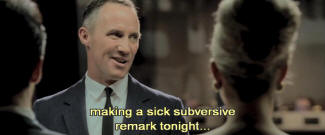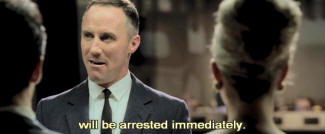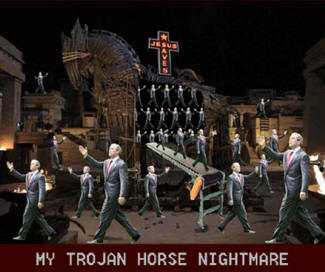Justice Stevens, dissenting
Appeals to prurient interests are commonplace on the Internet, as in older media. Many of those appeals lack serious value for minors as well as adults. Some are offensive to certain viewers but welcomed by others. For decades, our cases have recognized that the standards for judging their acceptability vary from viewer to viewer and from community to community. Those cases developed the requirement that communications should be protected if they do not violate contemporary community standards. In its original form, the community standard provided a shield for communications that are offensive only to the least tolerant members of society. Thus, the Court “has emphasized on more than one occasion that a principal concern in requiring that a judgment be made on the basis of 'contemporary community standards' is to assure that the material is judged neither on the basis of each juror's personal opinion, nor by its effect on a particularly sensitive or insensitive person or group.”
Hamling v. United States, 418 U. S. 87, 107 (1974). In the context of the Internet, however, community standards become a sword, rather than a shield. If a prurient appeal is offensive in a puritan village, it may be a crime to post it on the World Wide Web.
The Child Online Protection Act (COPA) restricts access by adults as well as children to materials that are “harmful to minors.” 47 U. S. C. §231(a)(1) (1994 ed., Supp. V). COPA is a substantial improvement over its predecessor, the Communications Decency Act of 1996 (CDA), which we held unconstitutional five years ago in
Reno v. American Civil Liberties Union, 521 U. S. 844 (1997) (ACLU I). Congress has thoughtfully addressed several of the First Amendment problems that we identified in that case. Nevertheless, COPA preserves the use of contemporary community standards to define which materials are harmful to minors. As we explained in ACLU I, 521 U. S., at 877-878, “the `community standards' criterion as applied to the Internet means that any communication available to a nationwide audience will be judged by the standards of the community most likely to be offended by the message.”
We have recognized that the State has a compelling interest in protecting minors from harmful speech,
Sable Communications of Cal., Inc. v. FCC, 492 U. S. 115, 126 (1989), and on one occasion we upheld a restriction on indecent speech that was made available to the general public, because it could be accessed by minors,
FCC v. Pacifica Foundation, 438 U. S. 726 (1978). Our decision in that case was influenced by the distinctive characteristics of the broadcast medium, as well as the expertise of the agency, and the narrow scope of its order. Id., at 748-750; see also, ACLU I, 521 U. S., at 867. On the other hand, we have repeatedly rejected the position that the free speech rights of adults can be limited to what is acceptable for children. See id., at 875 (quoting
Bolger v. Youngs Drug Products Corp., 463 U. S. 60, 74-75 (1983) (“[R]egardless of the strength of the government's interest” in protecting children, “[t]he level of discourse reaching a mailbox simply cannot be limited to that which would be suitable for a sandbox”) (quotation marks omitted)); Sable, 492 U. S., at 128;
Butler v. Michigan, 352 U. S. 380, 383 (1957).
Petitioner relies on our decision in
Ginsberg v. New York, 390 U. S. 629 (1968), for the proposition that Congress can prohibit the display of materials that are harmful to minors. But the statute upheld in Ginsberg prohibited selling indecent materials directly to children, id., at 633 (describing N. Y. Penal Law §484-h, making it unlawful “ `knowingly to sell ... to a minor ...' ”), whereas the speech implicated here is simply posted on a medium that is accessible to both adults and children, 47 U. S. C. §231(a)(1) (prohibiting anyone from “knowingly ... mak[ing] any communication for commercial purposes that is available to any minor ...”). Like the restriction on indecent “dial-a-porn” numbers invalidated in Sable, the prohibition against mailing advertisements for contraceptives invalidated in Bolger, and the ban against selling adult books found impermissible in Butler, COPA seeks to limit protected speech that is not targeted at children, simply because it can be obtained by them while surfing the Web.1 In evaluating the overbreadth of such a statute, we should be mindful of Justice Frankfurter's admonition not to “burn the house to roast the pig,” Butler, 352 U. S., at 383.
COPA not only restricts speech that is made available to the general public, it also covers a medium in which speech cannot be segregated to avoid communities where it is likely to be considered harmful to minors. The Internet presents a unique forum for communication because information, once posted, is accessible everywhere on the network at once. The speaker cannot control access based on the location of the listener, nor can it choose the pathways through which its speech is transmitted. By approving the use of community standards in this context, Justice Thomas endorses a construction of COPA that has “the intolerable consequence of denying some sections of the country access to material, there deemed acceptable, which in others might be considered offensive to prevailing community standards of decency.”
Manual Enterprises, Inc. v. Day, 370 U. S. 478, 488 (1962).
If the material were forwarded through the mails, as in Hamling, or over the telephone, as in Sable, the sender could avoid destinations with the most restrictive standards. Indeed, in Sable, we upheld the application of community standards to a nationwide medium because the speaker was “free to tailor its messages ... to the communities it chooses to serve,” by either “hir[ing] operators to determine the source of the calls ... [or] arrang[ing] for the screening and blocking of out-of-area calls.” 492 U. S., at 125 (emphasis added). Our conclusion that it was permissible for the speaker to bear the ultimate burden of compliance, id., at 126, assumed that such compliance was at least possible without requiring the speaker to choose another medium or to limit its speech to what all would find acceptable. Given the undisputed fact that a provider who posts material on the Internet cannot prevent it from entering any geographic community, see ante, at 11, n. 6 (opinion of Thomas, J.), a law that criminalizes a particular communication in just a handful of destinations effectively prohibits transmission of that message to all of the 176.5 million Americans that have access to the Internet, see ante, at 2, n. 2 (opinion of Thomas, J.). In light of this fundamental difference in technologies, the rules applicable to the mass mailing of an obscene montage or to obscene dial-a-porn should not be used to judge the legality of messages on the World Wide Web.2
In his attempt to fit this case within the framework of Hamling and Sable, Justice Thomas overlooks the more obvious comparison--namely, the CDA invalidated in ACLU I. When we confronted a similar attempt by Congress to limit speech on the Internet based on community standards, we explained that because Web publishers cannot control who accesses their Web sites, using community standards to regulate speech on the Internet creates an overbreadth problem. “[T]he `community standards' criterion as applied to the Internet means that any communication available to a nationwide audience will be judged by the standards of the community most likely to be offended by the message.” 521 U. S., at 877-878. Although our holding in ACLU I did not turn on that factor alone, we did not adopt the position relied on by Justice Thomas--that applying community standards to the Internet is constitutional based on Hamling and Sable. See Reply Brief for Appellants in Reno v. ACLU, O. T. 1996, No. 96-511, p. 19.3
Justice Thomas points to several other provisions in COPA to argue that any overbreadth will be rendered insubstantial by the rest of the statute. Ante, at 14-15. These provisions afford little reassurance, however, as they only marginally limit the sweep of the statute. It is true that, in addition to COPA's “appeals to the prurient interest of minors” prong, the material must be “patently offensive with respect to minors” and it must lack “serious literary, artistic, political, or scientific value for minors.” 47 U. S. C. §231(e)(6). Nonetheless, the “patently offensive” prong is judged according to contemporary community standards as well, ante, at 11, n. 7 (opinion of Thomas, J.). Whatever disparity exists between various communities' assessment of the content that appeals to the prurient interest of minors will surely be matched by their differing opinions as to whether descriptions of sexual acts or depictions of nudity are patently offensive with respect to minors. Nor does the requirement that the material be “in some sense erotic,” see ante, at 15 (citing Erznoznik v. Jacksonville, 422 U. S. 205, 213, and n. 10 (1975)), substantially narrow the category of images covered. Arguably every depiction of nudity--partial or full--is in some sense erotic with respect to minors.4
Petitioner's argument that the “serious value” prong minimizes the statute's overbreadth is also unpersuasive. Although we have recognized that the serious value determination in obscenity cases should be based on an objective, reasonable person standard, Pope v. Illinois, 481 U. S. 497, 500 (1987), this criterion is inadequate to cure COPA's overbreadth because COPA adds an important qualifying phrase to the standard Miller v. California, 413 U. S. 15 (1973), formulation of the serious value prong. The question for the jury is not whether a reasonable person would conclude that the materials have serious value; instead, the jury must determine whether the materials have serious value for minors. Congress reasonably concluded that a substantial number of works, which have serious value for adults, do not have serious value for minors. Cf. ACLU I, 521 U. S., at 896 (O'Connor, J., concurring in judgment in part and dissenting in part) (“While discussions about prison rape or nude art ... may have some redeeming educational value for adults, they do not necessarily have any such value for minors”). Thus, even though the serious value prong limits the total amount of speech covered by the statute, it remains true that there is a significant amount of protected speech within the category of materials that have no serious value for minors. That speech is effectively prohibited whenever the least tolerant communities find it harmful to minors.5 While the objective nature of the inquiry may eliminate any worry that the serious value determination will be made by the least tolerant community, it does not change the fact that, within the subset of images deemed to have no serious value for minors, the decision whether minors and adults throughout the country will have access to that speech will still be made by the most restrictive community.
Justice Kennedy makes a similar misstep, ante, at 2 (opinion concurring in judgment), when he ties the overbreadth inquiry to questions about the scope of the other provisions of the statute. According to his view, we cannot determine whether the statute is substantially overbroad based on its use of community standards without first determining how much of the speech on the Internet is saved by the other restrictions in the statute. But this represents a fundamental misconception of our overbreadth doctrine. As Justice White explained in
Broadrick v. Oklahoma, 413 U. S. 601, 615 (1973),“the overbreadth of a statute must not only be real, but substantial as well, judged in relation to the statute's plainly legitimate sweep.” (Emphasis added.) Regardless of how the Court of Appeals interprets the “commercial purposes” or “as a whole” provisions on remand, the question we must answer is whether the statute restricts a substantial amount of protected speech relative to its legitimate sweep by virtue of the fact that it uses community standards.6 These other provisions may reduce the absolute number of Web pages covered by the statute, but even the narrowest version of the statute abridges a substantial amount of protected speech that many communities would not find harmful to minors. Because Web speakers cannot limit access to those specific communities, the statute is substantially overbroad regardless of how its other provisions are construed.
Justice Thomas acknowledges, and petitioner concedes, that juries across the country will apply different standards and reach different conclusions about whether particular works are harmful to minors. See ante, at 12-13; Brief for Petitioner 3-4, 39. We recognized as much in ACLU I when we noted that “discussions about prison rape or safe sexual practices, artistic images that include nude subjects, and arguably the card catalog of the Carnegie Library” might offend some community's standards and not others, 521 U. S., at 878. In fact, our own division on that question provides further evidence of the range of attitudes about such material. See, e.g., id., at 896 (O'Connor, J., concurring in judgment in part and dissenting in part). Moreover, amici for respondents describe studies showing substantial variation among communities in their attitudes toward works involving homosexuality, masturbation, and nudity.7
Even if most, if not all, of these works would be excluded from COPA's coverage by the serious value prong, they illustrate the diversity of public opinion on the underlying themes depicted. This diversity of views surely extends to whether materials with the same themes, that do not have serious value for minors, appeal to their prurient interests and are patently offensive. There is no reason to think the differences between communities' standards will disappear once the image or description is no longer within the context of a work that has serious value for minors.8 Because communities differ widely in their attitudes toward sex, particularly when minors are concerned, the Court of Appeals was correct to conclude that, regardless of how COPA's other provisions are construed, applying community standards to the Internet will restrict a substantial amount of protected speech that would not be considered harmful to minors in many communities.
Whether that consequence is appropriate depends, of course, on the content of the message. The kind of hard-core pornography involved in Hamling, which I assume would be obscene under any community's standard, does not belong on the Internet. Perhaps “teasers” that serve no function except to invite viewers to examine hardcore materials, or the hidden terms written into a Web site's “metatags” in order to dupe unwitting Web surfers into visiting pornographic sites, deserve the same fate. But COPA extends to a wide range of prurient appeals in advertisements, online magazines, Web-based bulletin boards and chat rooms, stock photo galleries, Web diaries, and a variety of illustrations encompassing a vast number of messages that are unobjectionable in most of the country and yet provide no “serious value” for minors. It is quite wrong to allow the standards of a minority consisting of the least tolerant communities to regulate access to relatively harmless messages in this burgeoning market.
In the context of most other media, using community standards to differentiate between permissible and impermissible speech has two virtues. As mentioned above, community standards originally served as a shield to protect speakers from the least tolerant members of society. By aggregating values at the community level, the Miller test eliminated the outliers at both ends of the spectrum and provided some predictability as to what constitutes obscene speech. But community standards also serve as a shield to protect audience members, by allowing people to self-sort based on their preferences. Those who abhor and those who tolerate sexually explicit speech can seek out like-minded people and settle in communities that share their views on what is acceptable for themselves and their children. This sorting mechanism, however, does not exist in cyberspace; the audience cannot self-segregate. As a result, in the context of the Internet this shield also becomes a sword, because the community that wishes to live without certain material not only rids itself, but the entire Internet of the offending speech.
In sum, I would affirm the judgment of the Court of Appeals and therefore respectfully dissent.




